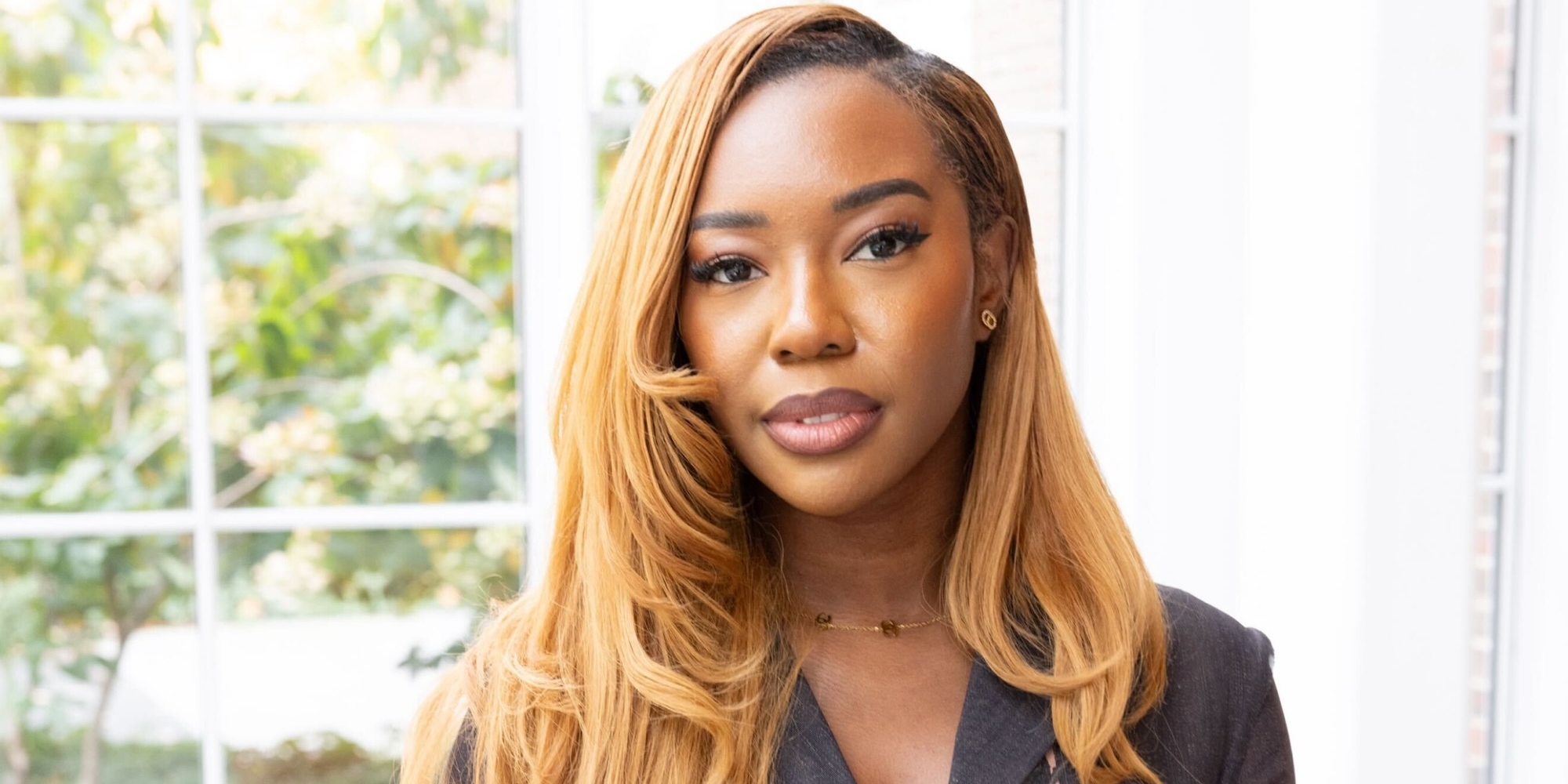
Why Topicals’ Olamide Olowe Risked Her Own Money On A Culturally-Attuned Brand Holding Company
After E.l.f. Beauty’s up to $1 billion purchase of Rhode, headlines broadcast that it’s maneuvering to become the L’Oréal of the future. But it’s not the only one aspiring to be a brand holding company for the next generation of consumers.
In April, Topicals founder and CEO Olamide Olowe and president Sochi Mbadugha launched Cost Of Doing Business with the acquisition of haircare brand Bread Beauty Supply and aspirations to do more deals of culturally relevant brands with close connections to avid communities. Olowe poured her own money into the Bread buy, a decision she admits has been taxing.
“As a personal business decision, was it the smartest decision or the right decision on paper? Probably not,” Olowe tells Beauty Independent. “But I’m one of those people who bets on the house. So I know that, in the long term, it’s going to be a great thing…but, in the moment, it’s really difficult.”
Olowe’s stellar run at Topicals paved the way for CODB. Launched in 2020 with founding partner Claudia Teng, Topicals reports it’s currently the fastest-growing brand in the skincare category at Sephora and sells the beauty specialty chain’s No. 1 eye mask.
Olowe made history as the youngest Black woman ever to raise over $10 million in venture capital, achieving that milestone at age 26 when Topicals closed its series A round in 2022. In total, Topicals has secured around $20 million in funding, and its investors include Cavu Consumer Partners, Jay-Z’s Marcy Venture Partners, Lerer Hippeau, Hyve Ventures, Rough Draft Ventures, Bozoma Saint John, Issa Rae, Yvonne Orji and Hannah Bronfman.
The millions Olowe raised for Topicals haven’t made fundraising for CODB a breeze. She says, “With the success I’ve had at Topicals, you would think that it’d be super easy for me to raise capital, but it’s not for whatever reason, whether it’s the economy this year or whether people feel like it’s too much risk.”
Ahead, Olowe talks about the categories she’s eyeing for possible CODB deals, the keys to Topicals’ marketing wizardry, strategies for turning the brand’s website into a go-to destination for its fans, and reasons for the lack of Black-owned brand holding companies.
In an Instagram Live last month, you mentioned that you’ve been fighting for your life since May. What are the challenges you’ve been facing?
I’ll zoom out and say that it is really exciting to be working on Bread, and there’s so much potential. I’m so excited because it’s stretching me in different ways. One, it’s taken me back to the early days of Topicals where I had to be very much a hustler. I had to be ear to the ground to understand what the customer wanted.
But it’s flexing a different muscle for me because I’ve never done a turnaround before. If I’ve launched something, it’s been my own thing from the beginning, my own vision. It’s really interesting to keep the balance of the founder’s vision, the opportunities in the market and my own taste.
Many people in our community are always asking, why are there no Black holding companies? Why aren’t there Black companies acquiring other Black companies? It takes a lot of capital, and it takes a lot of patient capital at that. This isn’t something that’s going to return in six months. This is something maybe two, three years down the line you finally get to see a turnaround. It’s been really difficult for me because I acquired Bread with my own capital, with the help of a few smaller investors. It is a lot. My own livelihood is wrapped up in the success of this business.
I feel like day zero with Topicals, which is interesting to still have to be scrappy in that way, and because I feel like there are eyes on me right now since the success of Topicals, I do take it very seriously that Bread is also just as successful, if not more. It’s put more pressure on me that is self-inflicted more than coming from the community itself. I’m constantly asking myself, can I do this again? Did I bite off more than I can chew? In those moments of self-doubt, I always remind myself that I’ve been through worse, things have been harder, and I’ve always conquered it.
What was the impetus behind CODB?
One, just the brand. I love the founder [Maeva Heim]. She’s been a friend of mine for years. I liked the category. I started my career at SheaMoisture in hair, and that’s my first love in beauty, but never enough for me to launch a brand. So, I was really excited when the opportunity came for us to take over Bread, and I’m really excited about what it’s going to become.
We have this thesis around what we believe the future of the consumer is, and it’s this idea that audiences are actually what is giving people arbitrage or leverage. It’s not actually economies of scale or getting into retail. Because of our experience building for our community, we feel like we are at an advantage to do that across multiple sectors.
That’s the impetus also around having a holding company. Not all the companies we’re going to acquire actually may be Black-owned, but we are acquiring companies that we feel like have cultural awareness and know how to serve the community that we serve.
Are there specific categories you have your eyes on?
Bread is definitely the focus, so we will probably be heads down on that for a while, but I’m really interested in food and bev. I’m really interested in financial technology. I would say those are the main ones.
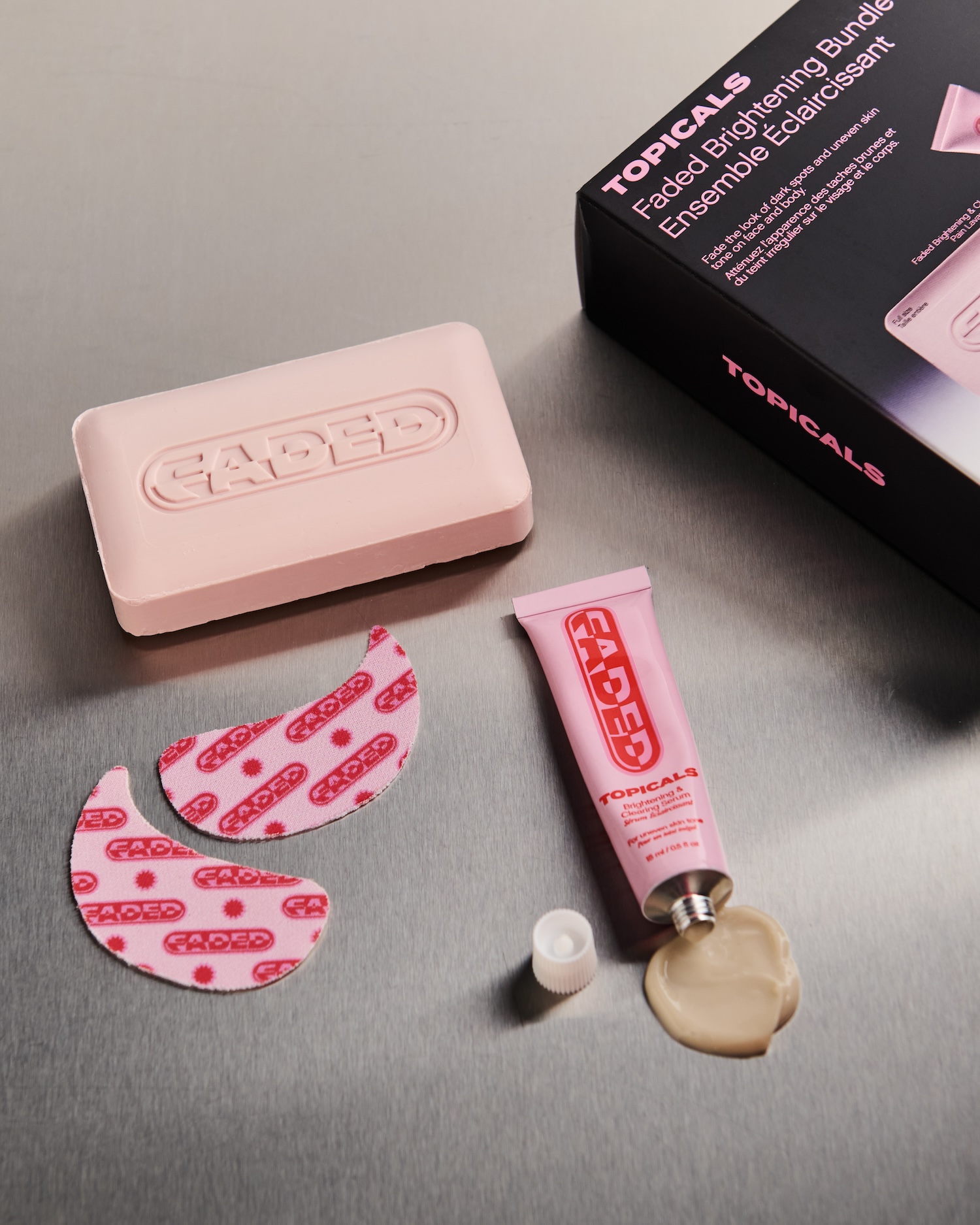
On your Instagram Live, you said that getting into Sephora is great, but it’s often where a brand’s problems start. At Topicals, how have you managed that partnership and maintain momentum?
Being in retail is very difficult because it is expensive. That’s the reality for any brand that enters. Brands that are well financed are going to have an easier time just because the cost associated with being in retail. For us, we haven’t actually raised as much money as most of the brands in Sephora. We’re one of the more resourced Black-owned brands, but, in general, we raised a fraction of what a lot of the other brands have.
We’ve always stuck to two things. One, we wanted to be a brand that had super effective products for chronic skin conditions that were tested across skin tones so that anyone from the lightest of skin tones to the darkest of skin tones could think of Topicals as a brand they could go to if they were having an acne flareup, hyperpigmentation, eczema, ingrown hair. And we’ve proved that. The product quality and efficacy was No. 1 for us.
No. 2 was cultural storytelling. I’m very much a fan of film. I’m someone who is really interested in storytelling, and I wanted to make sure that the brand reflected that.
Topicals launched at Sephora in the United Kingdom a couple of years ago. How has that expansion been?
Sephora has made it easier for us to get into international markets. We’re in the U.S., Canada, U.K., and we’ll be in other markets in the next 18 months. What’s interesting about the U.K. market is that Sephora is actually a new entrant. Because of that, people aren’t as aware of it.
About 60% of beauty purchasing in the U.K. is online. The customer behavior of going into the store just isn’t normal, especially as a high-end retailer. They’re used to going to Boots or a Superdrug. It’s made us think about, if this is the way the customer likes to shop, where do we need to be, and how do we need to position ourselves for them to know that we are live in the U.K.?
We just did an event in East London Box Park. We did an ice cream truck in partnership with Sephora U.K. They’ve been a great partner, but we’ve also as a team learned how that customer likes to shop. The other thing about that customer is they’re very price sensitive. Making sure that you’re talking about the value of your products and the function is really important.
What is Topicals’ e-commerce strategy. Is your website a major revenue source or more on the back burner compared to Sephora?
It’s a big part of our strategy. I made an effort this year with the team for us to control our destiny more. Our split of business is [balanced] between Sephora, Amazon and DTC, and we did that purposely because retail’s a tough business and things go up and down there, but we wanted to make sure that, regardless of how our retail business is doing, as a brand, we’re going to be doing well. Our DTC business has been super crucial for us because we believe that’s a place where we get to test and learn.
One of the things that we did last year, and we’ll do it again at the end of this year, is launching limited-edition color sets of our eye mask or limited-edition bundles. That allows us to do a bit more storytelling. We’re also launching a program next month called Topicals Certified where we’re offering people access to an aesthetician that is skin of color and approved by Topicals, meaning that they know how to treat skin conditions in all skin tones. We’re offering that to our customers for free when they buy our Faded starter kit bundle.
We are trying to offer more resources to the customer through our DTC site while also making sure they are shopping there. Shopping at our DTC isn’t actually the most important thing to us, it is more about helping the customer find the right products for them and having a good experience with us.
“You don’t have to be everything to everyone, but you have to be everything to one.”
How often do you come out with new products, and what do you consider when you’re formulating?
We’ve only launched two to three new products a year over the last five years, so we’ve only launched about 15 products, which is a very tight assortment for a skincare brand, specifically. Other categories or brands are typically releasing 50 to 100 SKUs over the lifetime of the business, and we’re very opposite of that.
To know that we’re still one of Sephora’s fastest-growing skincare brands, even though we have a really tight assortment, speaks to the efficacy of the products and how good we are at connecting our customer base with the right kind of products for their skin condition.
We only launch in categories that we feel like we can make something better or we can improve people’s experience with the product. That might be the form factor. A great example of that is High Roller. Most ingrown hair products, you had to apply to a cotton swab and then apply to the area, and we made a very hygienic roller bowl. That form factor has been very well received by our customers.
We are only innovating in spaces where we feel like it’s necessary. We’re not creating any redundancy in the industry, and we focus primarily on chronic skin conditions, but we add a bit of fun to the treatment of your chronic skin conditions.
Topicals is a brand people point to when they talk about what successful marketing looks like. What performs best for Topicals from a conversion perspective? Is it the trips? Is it the highly produced content? UGC?
I always tell my team, “You don’t have to be everything to everyone, but you have to be everything to one.” We focus on doing all the things for that customer, whether that’s on the mental health side, the function of the product, the cultural storytelling, touch points with me, being in retail and accessible, giving back to our community.
It’s about world building with that customer. I think that’s what marketing is these days. It’s not just an event or a campaign or a social strategy or PR, it’s all of the things that come together and build a world.
Paid is a part of our strategy, but we’ve used it to boost the success of our organic content. Paid doesn’t work that well if organically people aren’t already excited about you as a brand. It becomes really expensive and not as effective.
Is there a campaign or marketing moment that you’re most proud of?
I have really enjoyed our brand trips and not for the reason you might think. I love the fun of it, but I think people don’t realize how much of a concerted effort we make as a brand to create opportunities for growth and driving economies in African countries. We’ve been to two African countries, Nigeria and Ghana, and we’ve been to Bermuda, which is a Black Caribbean country.
We have another brand trip that we’re going to launch at the end of this year also to an African country. My big goal is to make Africa not look like a place of disparity, but as a place that has wealth in culture, food and heritage.
I’m proud to be Nigerian. Growing up, we were made fun of for being African, and now it’s cool to see people touch back and reach back to their roots and also the cultural exchange of learning about other cultures even within your own country.
How big is the Topicals team? Besides yourself, who is key to making the brand work?
We’re 40-plus now, and I would say the president of Topicals, Sochi, she’s super key in business functions, growth ops, sales. I work on the side of product, creative and brand, but also want to give a big shout out to Julia [Shao], our creative director. She’s been with the brand since day zero and has done a great job of taking my vision and making it visually appealing.
About a year ago, Abiola [Babarinde] joined as our head of brand, and I really enjoy working with her because a lot of the things that we think about and talked about are quite meta because marketing is psychology. I’m glad to have someone who speaks my language in that way and knows how to translate that into campaign strategies that capture people’s emotions and their excitement for the brand.
What are short- and long-term goals for Topicals?
The goal is to continue serving our customer in whatever skin condition category they want us to create products in. On the storytelling and experiential side, just allow people to have fun. Skin conditions can feel so serious and, instead of them feeling serious, our goal is to make things feel fun. Outside of that, it’s continuing to grow the brand footprint globally and the impact within culture.


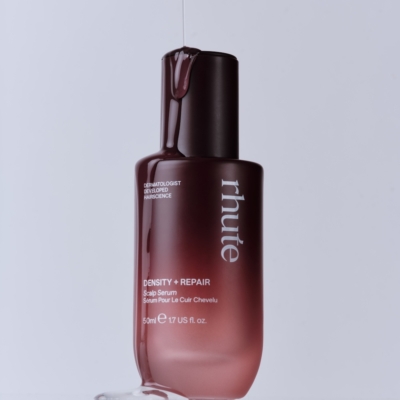
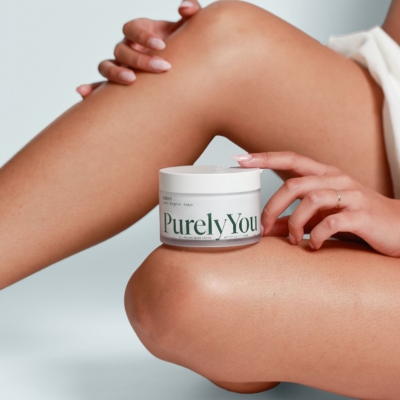
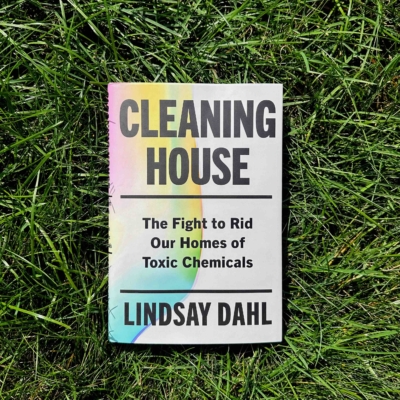
Leave a Reply
You must be logged in to post a comment.